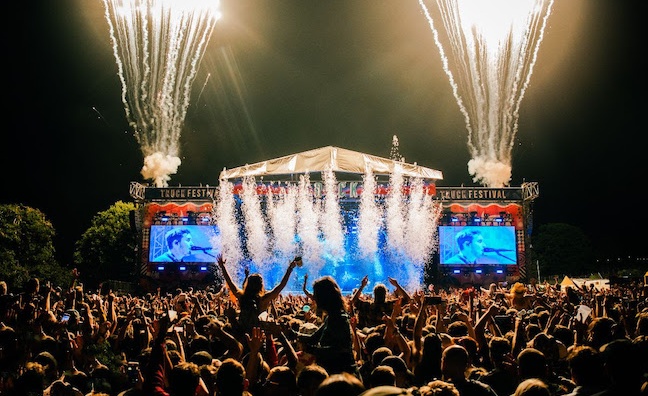After the huge disruption caused by Covid to the UK festival sector, 2022 has seen a full summer season of events for fans.
But while the pandemic is no longer restricting live music as in 2020 and 2021, the cost of living crisis has become acute for festivals.
For many events staging their first edition in three years, ticket prices set in 2019/2020 have had to be honoured in 2022 at a time when inflation is running at 9.4%. In 2020, the average UK inflation rate was around 1%.
Despite a more optimistic outlook following two lost years due to the pandemic, there are growing fears about the economic situation - a cost of living crisis, rising inflation and a recession forecast by the Bank Of England - and the long-term impact of the 2020-21 shutdown.
“If the hope was that 2022 was the bounce back year, actually that’s going to be 2023,” Jon Collins, CEO of trade body LIVE, told Music Week. “2022 is still a year of tremendous uncertainty that we need to get through.
“There are festivals honouring ticket prices that were set in 2019 against the 2022 cost base. So there are some huge challenges for the operators.”
According to current AIF data, 9% of festivals have been cancelled this year compared to 53% that were cancelled or postponed in 2021.
“We’re very pleased to be fully operational after two years of complete or partial shutdown,” said Paul Reed, CEO, Association Of Independent Festivals. “But there are a lot of challenges and very difficult trading conditions. We’re seeing 30% increases in infrastructure costs, or more in some cases, which is beyond the extraordinary rise in inflation in the wider economy.
“There are a lot of supply chain pressures. It’s particularly challenging for independent festivals as they operate on margins that are typically lower than 10%. It’s tight margins at the best of times.”
As well as the first edition of Glastonbury since 2019, the 80,000-capacity Parklife in Manchester was staged in June with acts including Lewis Capaldi, as well as international artists 50 Cent, Megan Thee Stallion and Tyler, The Creator.
Association Of Independent Festivals members that returned for the first time since 2019 included Bluedot (July 21-24), Truck Festival (July 22-24) and Kendal Calling (July 28-31).
Essentials such as food and fuel will always take priority, so there will naturally be less reliable demand in the market
Will Young, S&C
Truck Festival, staged in Oxfordshire, featured Sam Fender (pictured), Kasabian, Bombay Bicycle Club and Blossoms, Easy Life, Sigrid, Sports Team, Inhaler, Yard Act, Baby Queen and Alfie Templeman.
“After so long away, it was an emotional weekend that reminded us all why this show is so special,” said festival organiser Conor Burns.
When the 2022 Truck Festival went on sale, around 70% of tickets had already been rolled over from 2020 and 2021 (events that were announced but later cancelled due to Covid). While Truck weekend tickets were £105 in 2019, increased operating costs have pushed that up to around £140 for 2023 (including booking fee).
Strawberries & Creem Festival was staged in Cambridge last month with acts including Tion Wayne, Mabel, Ms Banks and Knucks.
“The cost of living crisis has hit everyone this year, but the arts, events and entertainment sectors are particularly affected – as people are now less likely to have spare savings for higher price tickets, which are ultimately a luxury item,” said Will Young, MD at S&C Productions. “Essentials such as food and fuel will, of course, always take priority, so there will naturally be less reliable demand in the market.”
Trade bodies are calling for a VAT cut for the cultural sector.
Young suggested that without the government taking action on the cost of living crisis for consumers, festivals may not be able to rely on strong advance ticket sales.
“That is ultimately what they rely on to be successful, and to continue providing audiences with the unrivalled cultural programme that this country is renowned for,” he said.
Ultimately, though, the Strawberries & Creem organiser sees 2021 as a positive result for the sector.
“It has been a tough year for promoters against this [financial] backdrop, but we’re very pleased and proud to have been able to grow our events once more nonetheless – and deliver two really positive and unique festivals [S&C and the Cambridge Club] to our audiences, despite all the challenges we have faced,” he said. “We hope that as the world settles into the ‘new normal’, events promoters can also enjoy a bit more predictability once more.”
Read our full report on the festival sector in the latest edition of Music Week.









